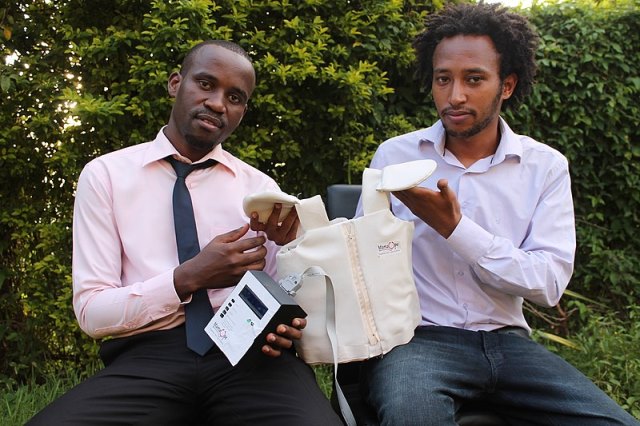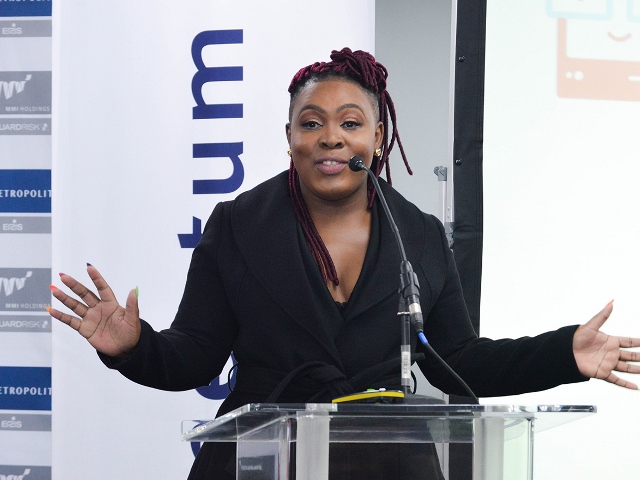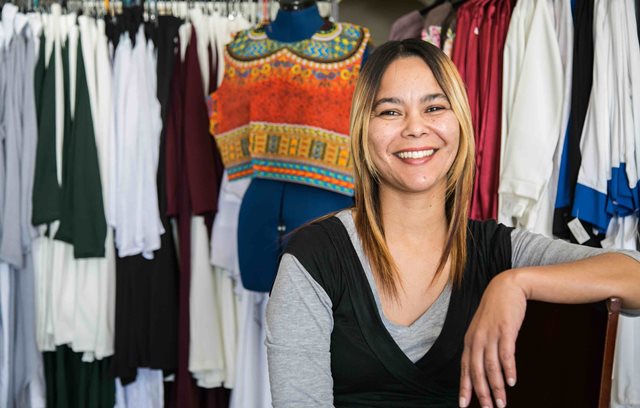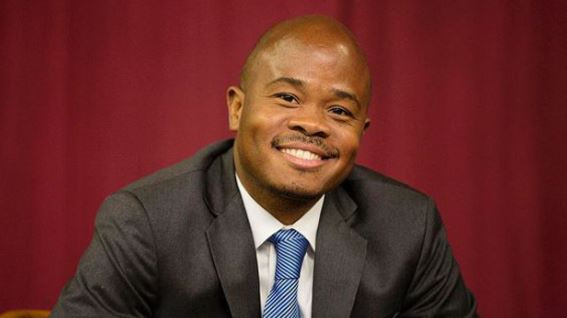Last Updated on April 22, 2023
Africa has one of the highest entrepreneurship rates in the world despite the continued economic instability. This is in part due to the African entrepreneurial spirit.
Over the last few years, African entrepreneurs have persisted in innovating and developing solutions that are influencing the continent’s future.
Regardless of numerous obstacles like limited access to capital, inadequate infrastructure, and unstable political environments, the entrepreneurial spirit in African business owners is awe-inspiring.

From micro-businesses to multinational corporations, the tales of these trailblazers are evidence of their tenacity and perseverance.
This article will examine the entrepreneurial spirit in African business owners with stories of innovation and resilience. You’ll see that most entrepreneurs only need the right conditions to become global phenomenons.
Challenges Facing African Entrepreneurs
Despite having a wealth of talent and natural resources, Africa is still the world’s poorest continent. An estimated 50% of its people live in poverty.
While entrepreneurship has long been promoted as a way to combat poverty and unemployment, African entrepreneurs face various difficult obstacles. What are these challenges?

Limited Access to Capital
A significant obstacle for African business owners is access to capital. Banks and other financial institutions frequently hesitate to lend money to business owners because they see entrepreneurship as a high-risk endeavor, especially in Africa.
As a result, business owners are often compelled to rely on their own savings or the support of their family and friends for financing. This might hold back entrepreneurs who lack personal savings or do not have a strong network of supporters.
Infrastructure Deficits
A major obstacle for African entrepreneurs is the lack of infrastructure. This includes inadequate power supplies, poor transportation systems, and limited access to information and communication technologies.
Entrepreneurs find it difficult to operate their businesses, communicate with suppliers and customers, or even get their products to market without a solid infrastructure.
Political Instability
Political and economic instability can make it challenging for business owners to run enterprises in many African nations. These challenges can also lead to changes in entrepreneurship-related laws and regulations, which makes it challenging for business owners to make long-term plans.
Bribery and Corruption
Many African entrepreneurs struggle to market their products because of bribery and corruption. Public offices like ministries or immigration services sometimes impose outrageous levies or demand bribes in order to perform their tasks. This can add unnecessary production costs, leading to low profit margins, or even losses.
Fortunately, the African entrepreneurial spirit continues to burn deep in many people. It keeps them going in spite of the many challenges. And there have been quite a number of inspiring stories of Africans succeeding, irrespective of the odds.
Success Stories That Highlight the African Entrepreneurial Spirit

It is no news that African business owners are developing ground-breaking solutions to the continent’s problems. Their success stories serve as an example to many.
From small business owners to tech pioneers and social entrepreneurs, these African entrepreneurs are reshaping the face of entrepreneurship and promoting economic growth and development throughout the continent.
Below we will look at a few examples of successful African entrepreneurs:
Small Business Owners
Most African entrepreneurs are small-business owners who have proven their resiliency and creativity through their success. For business owners in Africa, Nelly Agbogu, also known as Naijabrandchick, a self-taught digital and social media marketing coach, is one of such.

Nelly has a reputation for having a “Magic Touch” with Instagram sales and marketing, which has helped small businesses go from being ignored to fully booked.
She is one of Africa’s most renowned social media coaches. Nelly has also received recognition for her outstanding work in expanding businesses in publications like CNBC AFRICA, TW Magazine, the Guardian Newspaper, and ARISE TV. She has received several honors, including being named one of Nigeria’s top 100 women.
Tech Innovators
With their creative responses to African problems, tech innovators are significantly impacting Africa’s entrepreneurship landscape.
Temie Giwa-Tubosun, the founder of LifeBank, a business that uses technology to deliver blood and other medical supplies to hospitals throughout Nigeria, is one success story.
Numerous awards have been given to Temie’s company for its creative approach to healthcare in Africa, which has assisted in saving countless lives.
There are many more remarkable tech innovators in Africa. Osh Agabi of Nigeria created a neurotechnology device to detect explosives and cancer cells. Congolese engineers have developed human-like robots to help with Kinshasa’s traffic congestion.
Brian Turyabagye, an inventor from Uganda, developed a biomedical smart jacket that can detect pneumonia four times faster and more accurately than a doctor.

Social Entrepreneurs
Social entrepreneurs are those who pursue social and environmental good through their businesses. One good example is Andrew Mupuya, the creator of YELI Paper Bags, a business that makes eco-friendly paper bags from recycled materials.
Thanks to Andrew’s business, young people in Uganda now have employment opportunities. Commendably, this business has also contributed to a decrease in plastic bag use, a significant environmental issue in many African nations.
Lindiwe Matlali, a South African social entrepreneur, founded Africa Teen Geeks with the objective that no child must be left behind by the technological revolution.
This non-profit teaches children and unemployed youth how to code, introduces them to computer science, and inspires the next generation of technology entrepreneurs and innovators.

These social entrepreneurs prove the African entrepreneurial spirit isn’t only self-serving but for the collective good.
Agriculture
Kabir Shagaya, the creator of Zippy Logistics, a business that transports agricultural goods throughout Nigeria, is one such success story. Kabir’s business has contributed to lowering post-harvest losses and enhancing the effectiveness of agricultural value chains, creating jobs and economic growth.
Anushka Ratnayake founded myAgro in Senegal to empower smallholder farmers, reduce poverty, and increase food security.
The organization has pioneered a new bank-free savings model, allowing farmers to invest their funds in climate-resilient seeds, tools, fertilizers and training to increase their harvests and income significantly.
Manufacturing
Suraya Williams is the founder and director of Design26 and the Design26 Foundation in South Africa. She is a successful business leader, manufacturer, and social entrepreneur.

Her company focuses on providing a high-quality service for made-to-order matric ball and wedding gowns, ladies’ ready-to-wear clothing. This company also goes as far as running skill development for underprivileged adolescent girls.
Finance
African entrepreneurs are also having success in the finance industry. Tayo Oviosu, the founder of Paga, a Nigerian mobile payments company, is one such success story.

Tayo’s business has transformed how Nigerians transact money, giving millions of people access to financial services that were previously out of their reach.
Omar Cissé, the founder and CEO of Senegalese fintech startup InTouch SA, is a well-known entrepreneur in the African fintech ecosystem.
InTouch SA is a financial technology company that provides an African mobile payment platform for financial transactions. The company offers cutting-edge technology that enables it to manage all of its customers’ transactional needs securely and efficiently.
Flutterwave founders, Iyinoluwa Aboyeji, Olugbenga Agboola, and Adeleke Adekoya, are also excellent examples of inspiring African finance innovators.
Read: The Role of Fintech in the Gig Economy
Fashion

Scorpio Ramazani Khoury is the founder of the fashion house ‘Made in Kigali.’ Khoury aims to turn Rwanda into a center for high-end fashion using local raw materials that meet international standards.
Amaka Osakwe, the creator of the Nigerian fashion label Maki Oh, is another one with a fascinating success story.
Maki Oh is known worldwide for its distinctive designs and dedication to sustainability. Amaka’s business has helped put African fashion on the map globally and given young people in Nigeria job opportunities.
Tourism
Many African economies rely heavily on the tourism industry, and to promote its expansion, African entrepreneurs are coming up with creative new ideas.
An example of this is African entrepreneur Sihle Tshabalala, the creator of Quirky 30, a South African travel agency that connects tourists with experiences off the beaten path.
By generating job opportunities and promoting economic growth, Sihle’s business has contributed to showcasing South Africa’s culture and heritage diversity and richness.
Education
Fred Swaniker is the man behind the African Leadership Academy (ALA). Young Africans with exceptional leadership potential can enroll in education and leadership development programs through the ALA, a pan-African organization.

Since its founding in 2008, ALA has produced graduates who have gone on to enroll in some of the best universities in the world and risen to the top of their fields.
Healthcare
Healthcare is a significant problem in Africa. And the African entrepreneurial spirit is fighting to make it less of an issue in the continent.
Dr. Ola Orekunrin is the founder of Flying Doctors Nigeria. It is an air ambulance service that offers quick emergency medical services to remote and underserved communities.
Since the founding of this investment group, several lives have been saved by Dr. Orekunrin’s business by giving those in need access to timely medical care and transportation.
Lessons Learned from African Entrepreneurs
Despite several obstacles, African entrepreneurs are developing ground-breaking solutions to the continent’s problems. The African entrepreneurial spirit is fighting to promote economic growth and development and revolutionize the modern business world.
Here, we will look at some of the things that African entrepreneurs can teach us:
Resourcefulness and Creativity
Important lessons can be learned from African entrepreneurs because they are known for their resourcefulness and creativity.
Numerous African business owners have had to come up with creative answers to problems like a lack of infrastructure or restricted access to capital.
For instance, while some business owners have used social media to reach customers, others have created products using materials found locally. African businesspeople have demonstrated that, with imagination and ingenuity, even the most difficult challenges can be overcome.
Perseverance and Resilience
African entrepreneurs can teach us valuable lessons about perseverance and resilience. Although they face various obstacles, they still manage to keep moving and keep their dreams alive.
Many African entrepreneurs had to overcome obstacles and setbacks on their path to success, but they persisted and grew from their mistakes.
As a result, they have demonstrated that even the toughest obstacles can be managed with tenacity and resilience.
Collaborative Spirit
Numerous African businesspeople have forged alliances and partnerships to overcome obstacles and promote growth and development.
For instance, some business owners created cooperatives to access resources and markets, while others partnered with multinational corporations to gain access to capital and knowledge.
With this, African entrepreneurs have also demonstrated that collaboration can sometimes lead to greater success than working independently.
Before you go…
Hey, thank you for reading this blog to the end. I hope it was helpful. Let me tell you a little bit about Nicholas Idoko Technologies. We help businesses and companies build an online presence by developing web, mobile, desktop, and blockchain applications.
We also help aspiring software developers and programmers learn the skills they need to have a successful career. Take your first step to become a programming boss by joining our Learn To Code academy today!











